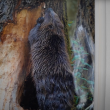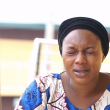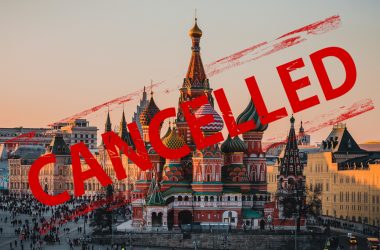I meet 18-year-old Eli Moore in the reception of Bournemouth and Poole College on a rainy Tuesday.
Quiet and unassuming, he leads me to a quiet corner of the canteen to chat.
He knows that I’m here to talk about the issues that face the LGBT+ community in Dorset, but I also want to get to know him and his experiences as a trans-male.
Eli is the first ever Business Administration Apprentice at Space Youth Project – a charity based in the college that runs a number of LGBT+ support groups across Dorset. He’s also Vice Chair of their peer mentoring and buddying programme, Supernova.
We start by talking about he how was introduced to Space.
“I was doing an art course [at the college] and it was around that time that I started to really look in to my gender and sexuality, and that didn’t go so well.
“I started getting bullied for being transgender, so I was offered counselling and it was through them that I found out about Space Youth Project.”
“Two years later I got a job with them, and that was last year.”
“They helped me so much with my transition. I’m now 4 months on testosterone and I don’t think I’d be where I am without Space.”
I had given a lot of thought as to how I was going to ask Eli about his own LGBT+ experiences, I didn’t want to appear ignorant or rude, so I was relieved with how forthcoming he was.
“I don’t really feel like I ever got to come out.”
I hadn’t planned to bring up his personal life so early on, but he had given me the perfect starting point.
“Could you tell me more about your personal experiences and coming out?” I ask.
There was almost certainly a better way of phrasing that question, but Eli responds instantly.
“I identify as trans-male” – a term used to describe someone who was born as female but is transitioning to become male, because the gender they identify with is not the gender they were born as.
“It was due to bullying that I never really got to come out in the way I wanted to. When I told my parents I was being bullied, I had to say why.”
“My parents are really supportive, but my mum likes to share things, so she told the rest of my family without me knowing, so I didn’t get to come out to my sisters or my dad.
“I don’t really feel like I ever got to come out.”
He reveals how telling his parents he was gay was much easier than telling them about his gender, as explaining he is a gay male was much harder for them to understand.
“Without me figuring out my gender I really didn’t know where I stood sexuality wise, I just knew I wasn’t straight.”
“You hear of the horror stories about being trans and you think, I don’t want that to be me, but eventually you accept it.”
I ask Eli when it was that he learnt he was male.
“I remember it was 3 years ago, I was questioning [my gender] when I started learning about gender variants online.”
He describes how meeting a “trans guy” at Pride when he was 14, was a turning point. He became close friends with him and gathered the courage to ask how he knew he was trans, and his answer resonated.
“It took me a long time to accept that I was a boy.
“You hear of the horror stories about being trans and you think, I don’t want that to be me, but eventually you accept it.”
I was saddened at the stark reality of what he had just said, so I turn the subject to the work he does for the LGBT community.
“I asked the room how many people knew about LGBT rights and I saw 10 hands go up out of around 50 young people.”
He was recently invited by Bournemouth Borough Council to take part in their annual Youth Parliamentary Debate. During the event young people from across Bournemouth discussed two issues, ‘A curriculum to prepare us for life’ and ‘Protect LGBT+ people’.
“Another Space member and I went to fight for LGBT rights and represent LGBT.”
I thought how promising it seemed that from a vote of 1,300 young people across Bournemouth, LGBT+ issues was in the top two topics that mattered most to them.
However, Eli and his friend were the only two people who voted for ‘Protect LGBT+ people’ at the end of the day.
“It sucked. It gave me a lot of anxiety actually, because I felt like we were just in a room of people against us.
“I asked the room how many people knew about LGBT rights and I saw 10 hands go up out of around 50 young people.”
He then describes how he heard people laughing that only two people had voted, and a homophobic comment too.
“That event alone highlighted how much we need LGBT protection within Bournemouth.
“People may not realise that saying “that’s so gay” is offensive, but for me as a gay person hearing that, it makes me feel vulnerable and unsafe.”
This leads me to ask Eli what he thinks needs to be done.
“I’d like to see more schools having rainbow alliances and support groups, so more allies can stand up for LGBT people.
“When I was at school my friends were scared that the bullying would turn to them if they stood up for me, so I think that’s important as it’s something I never had.”
Another important issue facing the young LGBT+ community is sex education.
The government announced plans last year to reform the sex education curriculum, and Eli explains he is keen for more people to push for LGBT inclusion.
“People don’t know how to have safe LGBT sex as it’s just not talked about and that’s a massive risk within the LGBT community, especially when HIV is still an issue.”
“there’s a massive difference in culture”
In a climate where men of power try to ban transgender people from serving in the military, Eli explains that the work Space is doing is needed more than ever.
He says he would like to see them do more outreach work – especially in rural Dorset, where he says they’re struggling.
“It doesn’t have the best [LGBT+] support in place. Space run groups once or twice a month, which realistically isn’t enough.
“Sherborne, for instance, is our lowest running group – we only go there once a month. The kids there don’t have any public transport so it’s not easy to meet up, and the members are all under 16 so they can’t drive either. So they only really get that peer support once a month.”
He explains that in Bournemouth, there’s a large LGBT+ presence, particularly with the triangle – home of Bournemouth’s “gay scene” – and the annual Pride festival, which is crucial for inclusion and raising awareness.
Yet 25 miles down the road in Weymouth, it seems very different.
“We had a volunteer who said she got slurs yelled at her every time she left the house. It’s not far from Bournemouth, but there’s a massive difference in culture.”
I wonder if he had grown up outside of Bournemouth if his experiences would have been any different.
“I do think that it would have taken me a lot longer to figure out I was trans, I didn’t know what it was until year 11 at school. But in Bournemouth and Poole I can go to 3 support groups a week, compared to once a month in rural areas.”
“I would love to go to protests but my anxiety holds me back.”
Finally, I ask Eli whether he sees himself as a voice for LGBT+ rights in the future.
“I would like to campaign a lot more locally, but I think I’m not the person to do it.
“I would love to go to protests but my anxiety holds me back. I do want to continue my work with Space though and support what they do, so I’d much rather be behind the scenes.”
LGBT+ History Month is running all through February. Click here to learn more.







